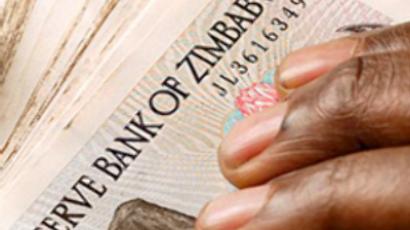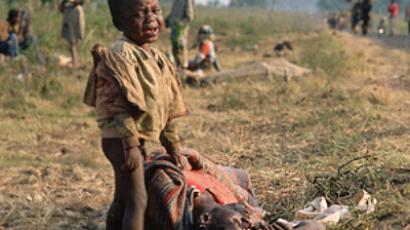Zimbabwean refugees freezing in Johannesburg
Thousands of Zimbabweans who fled their home country to escape the oppressive regime of President Robert Mugabe are facing anything but a warm welcome in South Africa.
In downtown Johannesburg thousands of people are gathering in an old Methodist Church, not to pray, but to try and survive another freezing night, as the icy air drops to below zero. They escaped misery at home, but have found themselves caught in a different kind of trap.
Two thousand Zimbabwean refugees who have made this church a temporary shelter.
“I feel very much like a refugee because of the situation right now. I just had a phone call, I was calling my home just now, my grandmother was also beaten, and I’m trying to make arrangements that she could come here. So, Zimbabwe for the meantime is a closed chapter in my life,” says Martha, a Zimbabwean refugee in South Africa, whose husband was badly beaten up by President Mugabe’s supporters – meaning she had to flee across the border with two small children.
More than four million Zimbabweans are estimated to have crossed the border into South Africa, and many of them are educated professionals like doctors, lawyers and teachers, all of them running for their lives from a government that’s killing its own people.
William, another Zimbabwean refugee in South Africa, says that “You can just imagine someone running from Zimbabwe has to cross Limpopo, the river infested with crocodiles, and then the person who sacrifices to cross that has to go to home affairs where it is reported they are illegal, they are turned back by the home affairs, on the way back they are arrested by the police.”
The story of Zimbabwe is a tragic tale of a liberation leader turned dictator. In 1987 Robert Mugabe was elected president of Zimbabwe. He was hailed as a hero who’d freed his country from white colonial rule, but his heavy handedness soon saw him becoming a dictator who terrorized anyone who opposed him.
Ngabutu, leader of the opposition movement for democratic change is in exile in Johannesburg, is sure that “Mugabe has betrayed the revolution in Zimbabwe. When we fought in the liberation war it was one man – one vote. We have been denied that right. We cannot exercise that right in Zimbabwe. We cannot elect a leader of our choice.”
Most of the Zimbabweans who have crossed into South Africa oppose Mugabe’s government. In freeing themselves from his dictatorial regime, they’ve escaped only to be incarcerated across the border. Out in the streets of Johannesburg, thousands of bodies curl up each night.
Some Zimbabweans are sleeping on the pavement outside the department of home affairs to guarantee their spot in the queue. They’re desperate to get temporary papers that will give them permission to stay in South Africa for at least six months.
Zimbabwean refugee John says that “Last week we had 4000 people here. It was on Thursday, but on Friday it was a little less, we had three thousand people. I’m sure there are a thousand here already.”
Most refugee Zimbabweans have nowhere to go, as long as Mugabe’s in power, they say returning home is not an option. Staying in South Africa is also difficult. They cannot find work without papers, and they can easily be picked up by the South African police and deported.
“I see no hope. I just see darkness because more than 80,000 were displaced because of xenophobic attacks,” says Zimbabwean refugee William.














